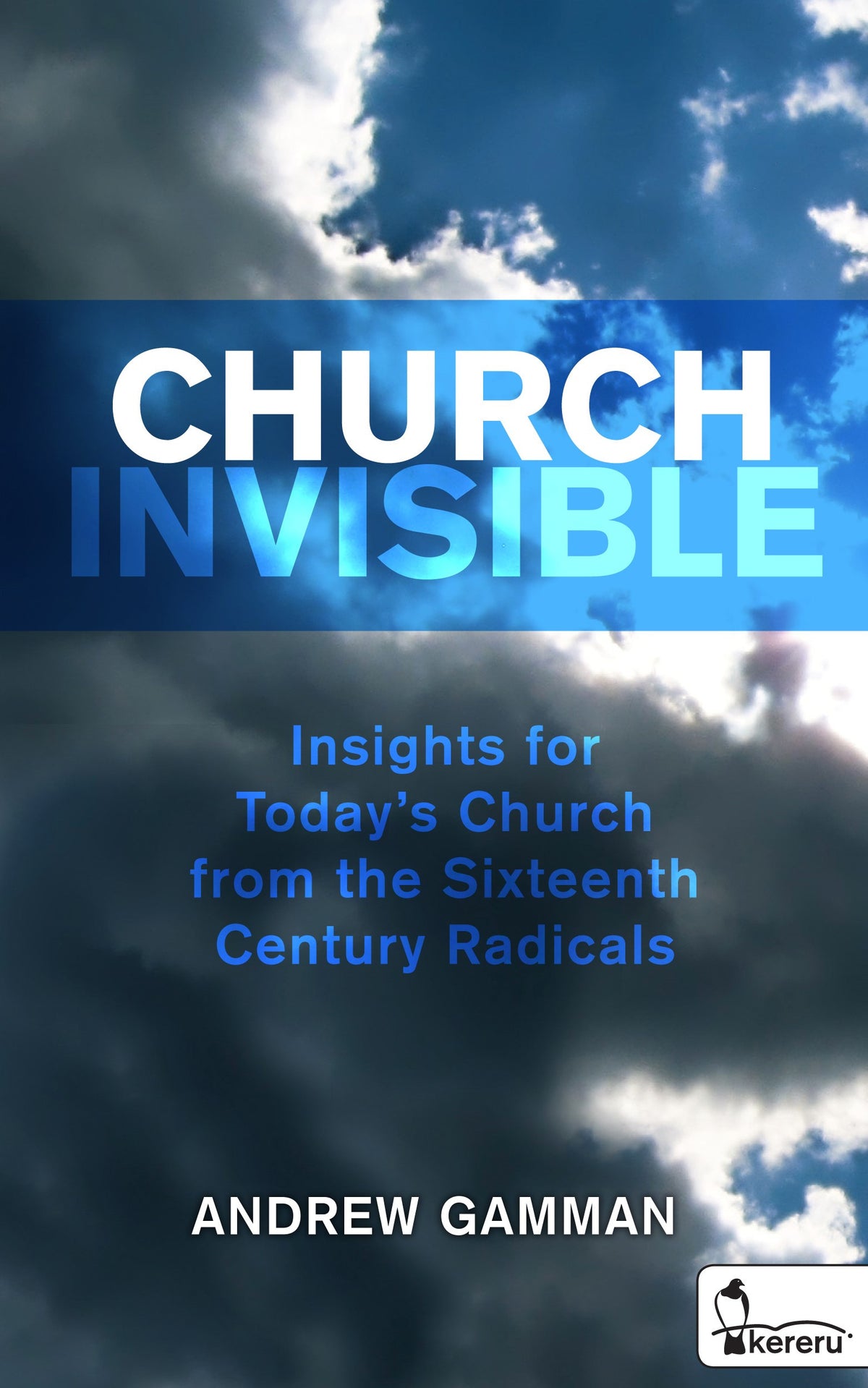
Book Description
Church Invisible - Insights for Today's Church from the Sixteenth Century Radicals
We are living in a time in which we are seeing a rapid unravelling of institutional structures in Western society and a re-alignment of values. The church is not faring well in this process. This book takes the form of an earthed and practical theology and asks the question ‘what is the church?’ Rather than a purely theoretical, or a purely pragmatic approach, it looks to the radical Reformers of the sixteenth century and finds there an emphasis on the church’s invisible realities and on community both of which have a relevance to the twenty-first century.About the Author
Andrew Gamman is passionate about fishing,family and the local church, although not necessarily in that order. He is concerned about the gap between the church and many in the wider community who are spiritually aware. Believing in Jesus is not a problem for them, but belonging to a church isn’t on the radar. In this regard he has been re-thinking how we define church, and what it is that we do when we meet together. He is an accredited Baptist minister and has worked in both Baptist and Methodist roles in NZ.
Recommendation
“In a day when the institutional Church is under question, not a few are eager to prescribe for what they perceive to be wrong. Andrew Gamman's book, however, is far from another set of nostrums, rather it is a reflection on places the Church has been before. From the ferment of debate about the nature of the Church in the 16th century, particularly within the radical wing of the Reformation, Andrew draws helpful insights and lessons that give pointers for the future.” Brian K Smith Professor Emeritus, Carey Baptist College, Auckland, New Zealand. Author of “Who made God?”, “Arrow Down” and “Solving the God Problem”.
Product details
Author: Andrew GammanLanguage: English
Formats: pdf/ePub
Word Count: 49,608
ISBN 978-0-473-26319-5 (pdf)
ISBN 978-0-473-26317-1 (ePub)
Sample Text - Church Invisible
What is it that constitutes the church?
In our day, religious belief is deemed to be a matter of personal preference. By such an outlook having Christian faith is considered a private matter. As a result the sense of connectedness with other Christians and commitment to them diminishes. This mindset has repercussions in church life. To those who hunger after spirituality today, it seems that local churches and denominations offer a smorgasbord of ideas and experiences from which individuals may help themselves and mix and match their own unique blend of beliefs and ideals. So we have a mass of individuals, many of whom hold various Christian beliefs, but who have no belonging to any church community.
Some have spoken about this phenomenon in terms of having "a churchless faith" or "believing without belonging." But, if we are referring to Christianity, isn't "a churchless faith" an oxymoron? If Jesus said "I will build my church" can those who put their faith in him then choose to stand apart from it? This book asks the underlying question, "What is the church?" Is it that you can't see the church's membership, as it is in essence just a matter of individuals with an inward commitment and no external forms and structures are necessary? The question is vitally important because in the face of postmodernity, Western society is witnessing the erosion of support for many institutional structures, particularly those of a hierarchical nature and the church is not faring well in this re-alignment of values.
The church is not as popular as Jesus, especially among the young. More recently it has been suggested that we need to break away from traditional ideas of church and to think in more fluid terms. Perhaps rather than a regularly meeting, visible, gathered community of faith, any informal network of Christians may be called "the church". A quick web search reveals that an increasing number of people are satisfying the desire for Christian community by means of on-line relationships in "virtual churches." For some, the relationships which are developed on-line are as real, meaningful and permanent, or even more so, than what they have been able to achieve by physically meeting together with other Christians. The term "virtual church" again raises the question of exactly how the church is to be defined.



